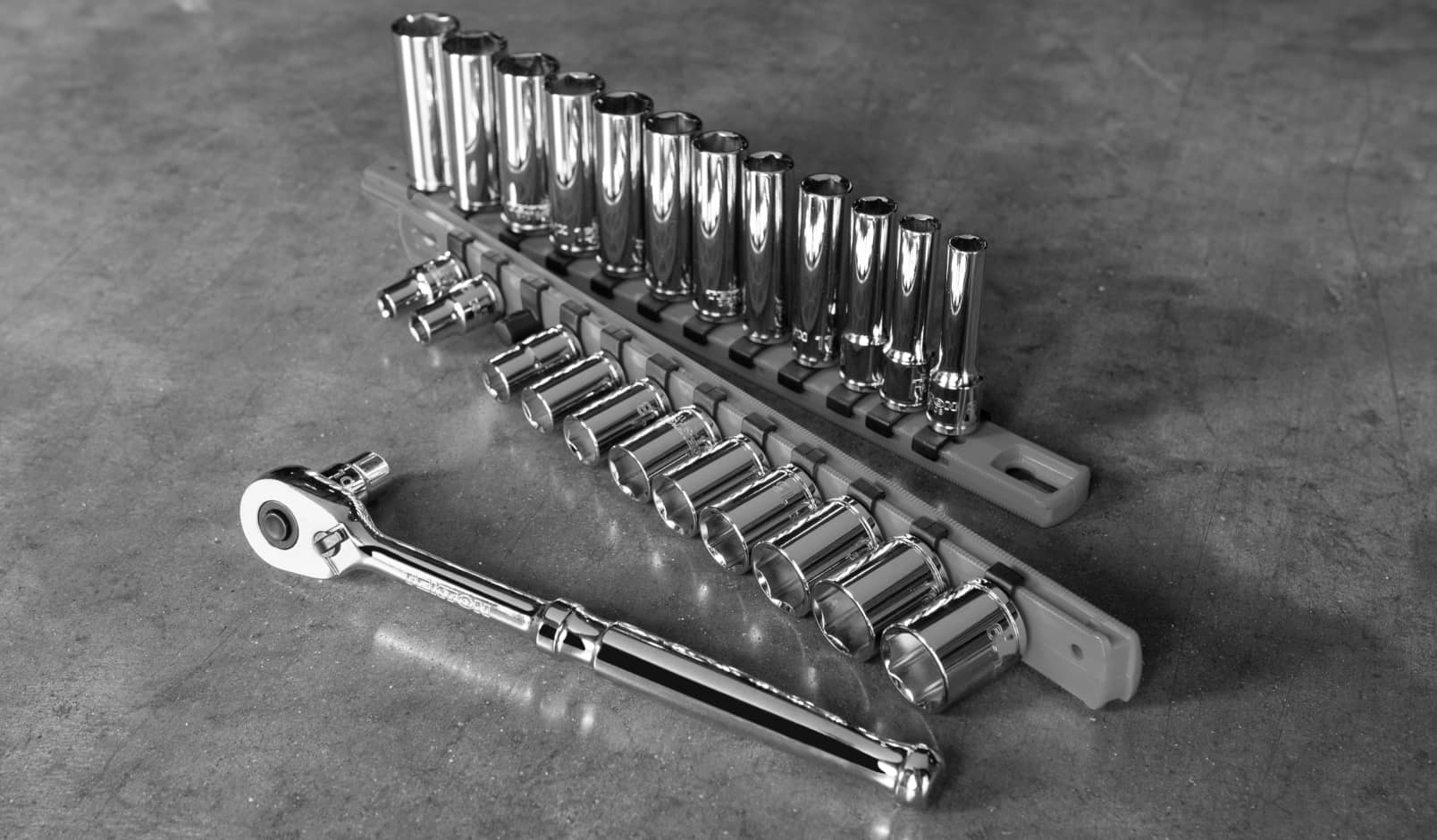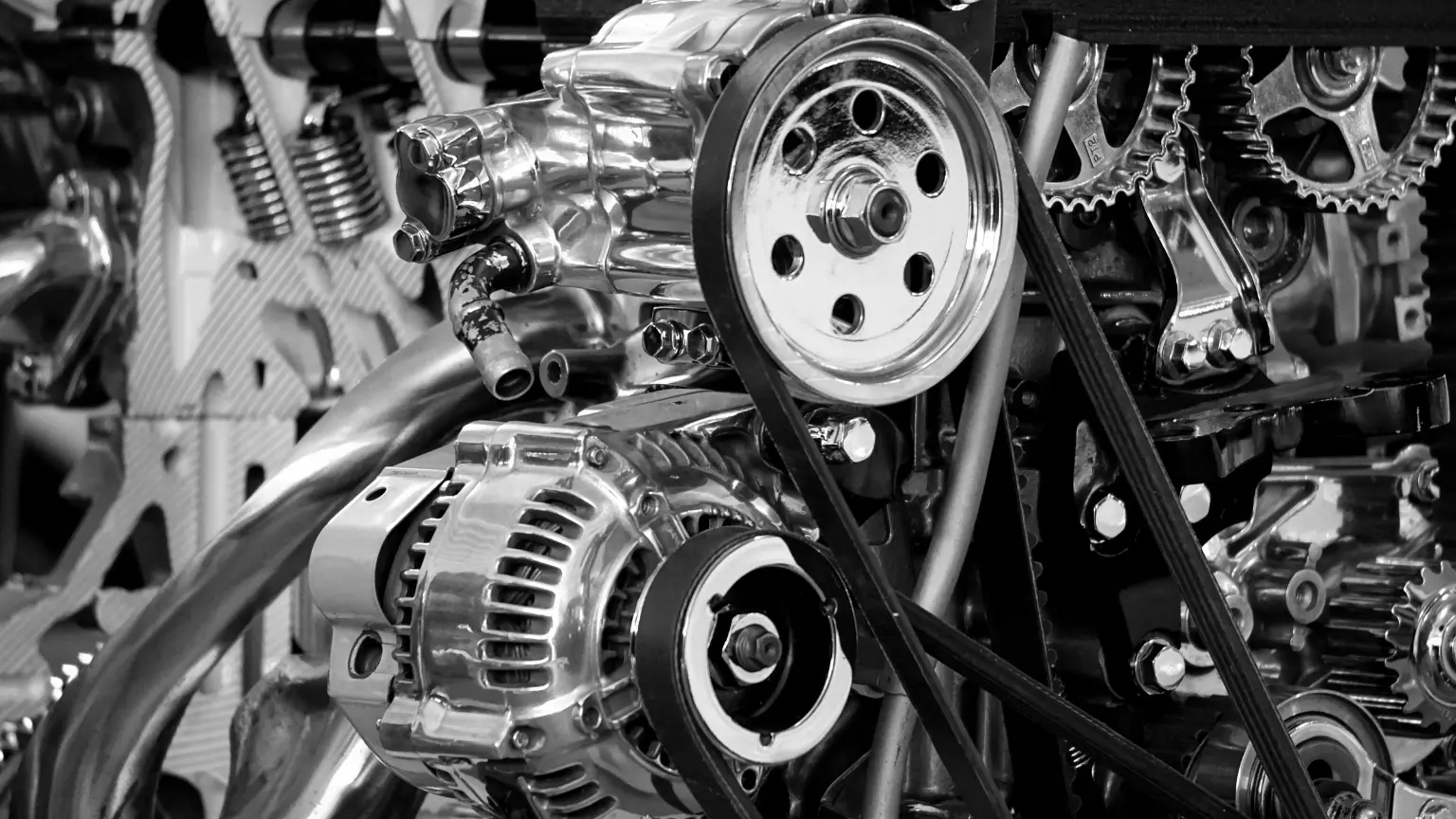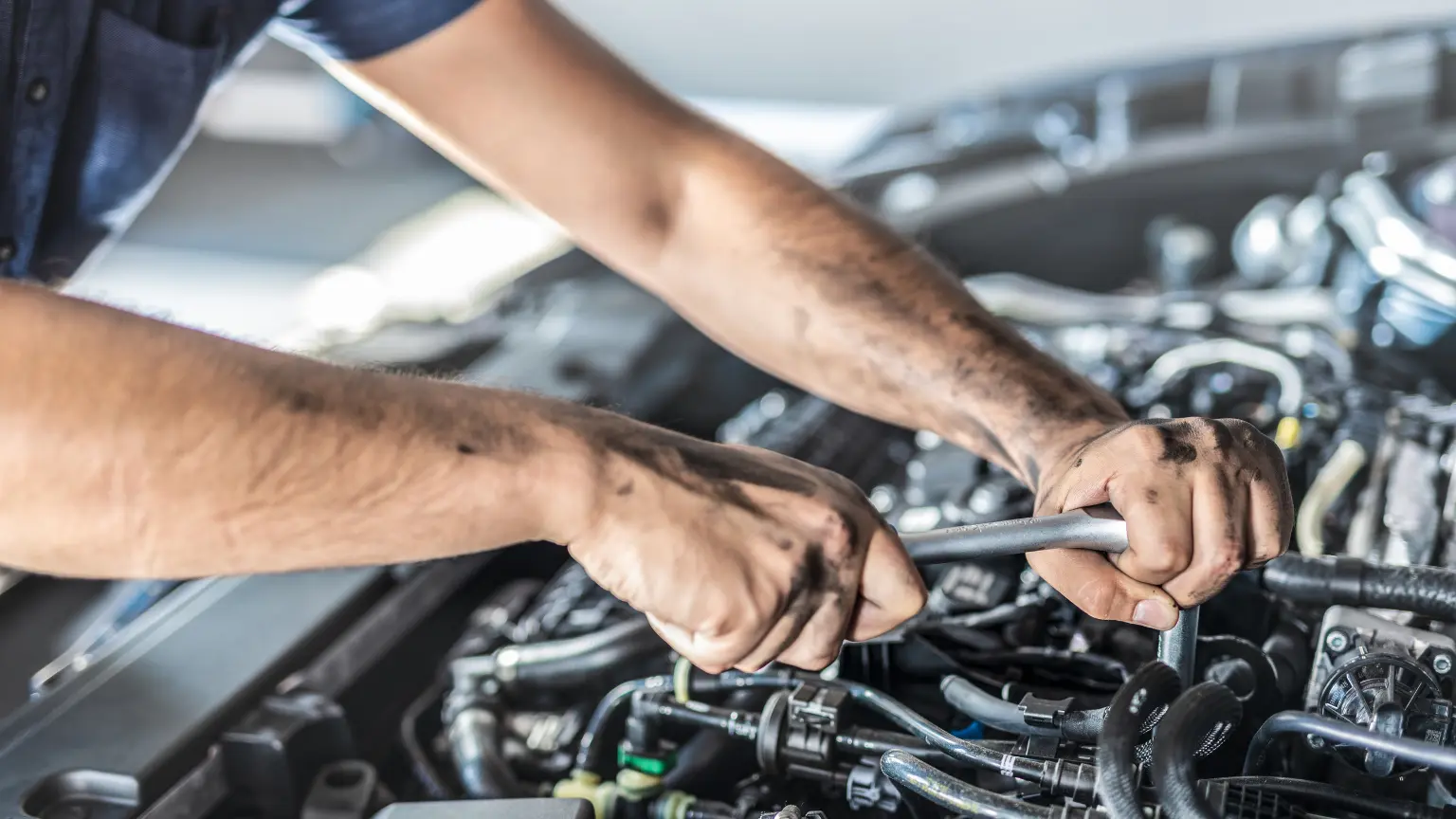Early Warning Signs Your Transmission Is In Trouble
Protect your transmission’s lifespan: regularly check fluid levels and quality, listen for unusual noises or warning lights, adopt proper driving habits, and get professional diagnostics.

Maintaining the health of your vehicle's transmission is crucial for its overall performance and longevity. The transmission is responsible for shifting gears in your car and for adapting the engine's power output to the wheels. Regular maintenance is necessary to ensure that this complex system functions smoothly. Neglecting such care can lead to transmission problems that are often complex and costly to fix. By understanding the basics of gearbox maintenance and regularly checking transmission fluid levels and quality, you can significantly extend your vehicle’s transmission's lifespan.
Key Indicators of Transmission Issues
Unusual Noises
If your car begins to emit grinding, whining, or clunking sounds, it's a clear signal that your transmission may be in distress. These sounds can vary depending on your car's model and the nature of the underlying issue. Grinding noises often indicate that the transmission's components are wearing unevenly or improperly lubricated. Whining might indicate a hydraulic failure, whereas clunking usually points to problems with the transmission's torque converter or gears. Addressing these sounds promptly by consulting an auto repair shop for transmissions can help prevent more extensive damage.

Difficulty Shifting Gears
When a transmission hesitates, slips, or fails to engage gears correctly, it's often a symptom of internal wear and tear or insufficient hydraulic pressure. This type of transmission problem can manifest as a delay in acceleration when you press the gas pedal or a jerky movement when shifting gears. Both manual and automatic transmissions can experience these issues, which, if left unchecked, could escalate to more severe problems.
Burning Smell
This odor often indicates that the transmission fluid has overheated, degrading its quality and effectiveness. Overheating can cause the transmission to run too hot, leading to accelerated wear and potential failure. It’s important to stop driving immediately and check your transmission fluid if you detect this smell. Regular checks and fluid changes are crucial steps in transmission damage prevention to maintain your vehicle’s health and functionality.
Checking Transmission Fluid
Importance of Regular Fluid Checks
Regularly checking your transmission fluid is a key component of preventive maintenance that can save you from costly repairs down the line. This fluid plays a critical role in lubricating and cooling the transmission parts, ensuring smooth gear shifts and prolonged transmission life. Neglecting this simple step can lead to inefficiencies and accelerated wear.
Signs of Low or Dirty Transmission Fluid
To avoid wear and overheating, which can cause major transmission damage, it is imperative to maintain clean and sufficient transmission fluid. Here are some detailed signs that your transmission fluid may need attention:
- Darker than Normal Color: Fresh transmission fluid typically has a bright red color, signifying its cleanliness and effectiveness. Over time, with the accumulation of contaminants and the effects of heat, the fluid can degrade and darken to a brown or black hue. This color change is a clear warning that the fluid is no longer performing at its optimal level and may be contributing to the overheating and inefficiency of the transmission system.
- Unpleasant Smell: A healthy transmission fluid has a relatively mild odor that is usually not noticeable unless you're specifically checking the fluid. However, if you detect a burnt smell coming from your transmission fluid, this is a significant indication that the fluid has been thermally degraded. This degradation can occur due to excessive heat within the transmission system, which breaks down the fluid's chemical structure, diminishing its lubricating properties and increasing the risk of transmission components grinding against each other.
- Visible Particles or Debris: The presence of particles or debris in the transmission fluid is a sign of internal wear and tear of transmission components. These particles can be metal shavings or bits of degraded seals and clutches, which indicate that the transmission is experiencing internal damage. Such contamination can significantly impair the fluid’s ability to lubricate and cool the transmission effectively, leading to increased friction and heat. Cleaning the transmission system and changing the fluid to remove these particles is essential to prevent further damage and maintain the transmission's performance.
Understanding these signs and taking appropriate action to maintain your transmission fluid can greatly contribute to the longevity and efficiency of your vehicle’s transmission system. Regular checks and maintenance ensure that your vehicle remains reliable and performs well, avoiding unexpected breakdowns and expensive repairs.
How to Check and Top-Up Transmission Fluid
The process begins by locating the transmission fluid dipstick, which is often near the engine oil dipstick; however, the precise location can vary by model and make. Thus, it is advisable to consult your vehicle's owner's manual for exact details. Once located, the next step is to remove the dipstick, and it's important to ensure the vehicle is on level ground to get an accurate reading. You should also ensure the engine is warmed up and running unless your manual suggests otherwise.
After locating the dipstick, wipe it clean with a rag or paper towel to remove any old fluid or debris that might skew the reading. Reinsert the dipstick fully into its tube, then pull it out again to check the fluid level. The dipstick will have markers indicating "full" and "low" levels. If the fluid does not reach the "full" mark, it indicates that a top-up is needed. It is crucial to use only the type of fluid specified in the vehicle’s manual, as different vehicles require different formulations to function optimally. When adding fluid, do so gradually and check the level frequently to avoid overfilling, which can be as detrimental as underfilling. This simple routine check is a fundamental part of gearbox maintenance and helps ensure your transmission operates efficiently.
Common Symptoms of Transmission Problems
Dashboard Warning Lights
When your vehicle’s dashboard lights up with a warning symbol, it’s important not to ignore it. A transmission warning light, often symbolized by a gear with an exclamation mark in the middle, indicates that there could be an issue with your transmission system. This could range from low fluid levels to serious mechanical faults. Early diagnosis and intervention by a professional at a transmission repair service can prevent more extensive damage to your transmission. Understanding the typical causes behind transmission issues, including mechanical wear, low or contaminated transmission fluid, overheating, and other contributing factors that can lead to transmission failure, is crucial.
Unusual Vibrations or Shaking
These vibrations may feel different from the typical engine vibrations and usually occur during gear shifts. This could be due to misaligned gears, worn-out transmission mounts, or other internal issues. As emphasized before, ignoring these signs can lead to more severe signs that your transmission is failing, necessitating potentially expensive repairs.
Driving Habits That Protect Your Transmission
Certain driving habits can greatly contribute to the longevity and efficiency of your transmission. Here are a few practices to adopt:
- Avoid Excessive Idling: When a vehicle idles for extended periods, the transmission fluid undergoes unnecessary heat exposure, which accelerates its degradation. This breakdown of fluid can lead to inefficient transmission operation and increased potential for damage. The fluid fails to lubricate and cool the transmission components effectively, increasing wear and the likelihood of mechanical automatic transmission failure. Reducing idle time helps to preserve the integrity of the transmission fluid over an extended length of time, protecting the efficiency and health of the transmission.
- Use Parking Brake on Inclines: Parking on an incline puts a significant strain on your transmission if it's solely relied upon to hold the vehicle in place. This practice can lead to premature wear and tear of the transmission's internal components. Utilizing the parking brake shifts the load from the transmission to the vehicle's braking system, alleviating stress on the transmission. This simple habit can prevent unnecessary strain and contribute to the overall durability of your transmission system, especially in hilly terrain.
- Shift Properly: Proper shifting technique is crucial for maintaining the health of your transmission. It is important to ensure that your vehicle is completely stopped before shifting between 'drive' and 'reverse' gears. This habit prevents gear grinding, which can cause significant damage to the transmission over time. By allowing the vehicle to come to a full stop, you ensure that the gears are properly aligned for the change, thereby reducing the risk of damaging the transmission’s intricate gearing mechanism.
Adopting these driving habits not only enhances your vehicle's performance but also prolongs the life of your transmission. Regularly practicing these simple, yet effective, techniques can extend the lifespan of your vehicle’s transmission, ensuring it continues to perform reliably over the years.

Consulting a Transmission Mechanic
Recommended steps drivers should consider if they notice potential transmission problems, such as seeking a professional diagnosis, avoiding further driving, or scheduling a service visit.
When to Visit a Transmission Repair Shop
It’s advisable to visit a transmission rebuild shop as soon as you notice any of the early warning signs of transmission issues, such as difficulty in shifting gears, unusual noises, or a burning smell. Delaying could exacerbate the problem, leading to more severe damage and potentially higher repair costs. A specialist can perform a comprehensive diagnosis to identify any issues and recommend the appropriate repairs or adjustments to restore your vehicle’s transmission to optimal condition.
Benefits of Professional Diagnostics
Utilizing advanced diagnostic tools, mechanics can assess the transmission's condition and functionality, ensuring that all potential problems are identified and addressed. This level of thoroughness helps in making informed decisions about whether repairs or a full transmission rebuild are necessary.
Choosing a Reliable Transmission Mechanic
Look for mechanics who have specific training and experience with transmission systems and check for certifications and memberships in professional associations. Reviews and testimonials from previous customers can also provide insight into the quality of service and customer satisfaction. A reliable mechanic will not only address the current issues but also guide transmission damage prevention to help avoid future problems.
Questions to Ask Your Mechanic
Visiting a mechanic can often be a daunting experience, especially when you're unsure about the technical aspects of your vehicle. To bridge this gap, it's essential to come prepared with specific questions that can help ensure your car is in good hands. Asking informed questions not only demonstrates your interest in your vehicle's well-being but also helps build a relationship of trust with your mechanic. Here are some questions you should consider asking:
- What experience do you have with my type of vehicle and its transmission? - It’s important to know if your mechanic is familiar with your car’s make, model, and transmission type. This question helps you measure whether they have specific expertise with vehicles like yours. An experienced mechanic with your type of vehicle will likely understand common issues and optimal maintenance practices. Knowing that the mechanic has successfully handled similar vehicles can provide you with peace of mind about their capability to manage yours effectively.
- Can you explain what diagnostics will be performed? - Understanding the diagnostic process is crucial in comprehending what issues your mechanic will be looking for during the inspection. A clear explanation of the diagnostics involved can provide insight into the mechanic's thoroughness and the sophistication of their equipment. This transparency helps you understand the scope of potential problems and the necessary steps to address them, ensuring you're not left in the dark about the health of your vehicle.
- What are the expected costs for diagnostic tests and repairs? - This question is vital for budgeting purposes. Asking for an upfront estimate helps you prepare financially for the necessary repairs and avoids the shock of unexpected costs. It also allows you to compare prices with other service providers to ensure you're getting a fair deal. Understanding the cost breakdown enhances transparency and aids in making informed decisions about proceeding with repairs or seeking a second opinion.
Understanding the right questions to ask your mechanic can transform an ordinary service visit into an informative session that benefits both you and your vehicle. It not only helps in ensuring your car receives the care it needs but also in building a relationship based on transparency and trust with your mechanic.
Frequently Asked Questions
Commonly asked questions and troubleshooting advice regarding transmission warning signs, symptoms, and solutions, aiming to clarify when professional help is necessary.
What are the most common early warning signs of transmission trouble?
Look for delayed or rough shifting, unusual noises, burning smells, fluid leaks, or dashboard warning lights. These symptoms often signal transmission issues that require prompt attention.
How can I tell if my transmission fluid needs to be changed?
Check for fluid that appears dark brown or black, has a burnt odor, or contains visible debris. Fresh fluid is typically bright red and clear.
Is it safe to drive if my transmission is slipping or jerking?
No, driving with a slipping or jerking transmission can worsen damage and increase repair costs. It’s best to have your vehicle inspected by a professional as soon as possible.
What should I do if I notice a burning smell from my transmission?
Stop driving immediately and check the transmission fluid level and condition. A burning smell often indicates overheating or fluid breakdown that needs professional diagnosis.
Can dashboard warning lights indicate transmission problems?
Yes, a check engine or transmission warning light can signal issues ranging from low fluid to serious mechanical faults. Prompt diagnostics are recommended to prevent further damage.
Why is my car making grinding or whining noises when shifting gears?
These sounds often point to internal wear, low fluid, or lubrication issues. Have a mechanic inspect your transmission to identify and resolve the cause.
How do I know if a fluid leak is from the transmission?
Transmission fluid is usually red or brown and may have a slightly sweet smell. If you see this under your car, your transmission may be leaking and needs attention.
When should I seek professional help for transmission issues?
Seek help if you notice persistent symptoms like slipping, rough shifts, fluid leaks, burning smells, or warning lights. Early intervention can prevent major transmission failures.

The importance of proactive maintenance cannot be overstated. Regular maintenance checks, timely fluid changes, and adopting good driving habits all contribute to the longevity and reliability of your transmission. Engaging a skilled transmission mechanic for regular inspections and adhering to a maintenance schedule ensures that potential problems are addressed before they evolve into significant concerns. This not only helps preserve your vehicle's health but also secures its value and functionality for the future. Keep your transmission in peak condition with Trans Medic Transmissions and let trusted experts keep your vehicle running smoothly. With diligent care and preventive maintenance, you can enjoy the benefits of a well-maintained vehicle and avoid the inconvenience of unexpected repairs.
Follow a maintenance program
Ante gravida id aenean quis egestas risus nam amet nullam leo diam diam aliquam eu eu malesuada arcu rhoncus suspendisse nulla mattis ut amet sagittis in justo egestas.

search for a trusted mechanic
Lorem ipsum dolor sit amet, consectetur adipiscing elit lobortis arcu enim urna adipiscing praesent velit viverra sit semper lorem eu cursus vel hendrerit elementum morbi curabitur etiam nibh justo, lorem aliquet donec sed sit mi dignissim at ante massa mattis.
- Neque sodales ut etiam sit amet nisl purus non tellus orci ac auctor
- Adipiscing elit ut aliquam purus sit amet viverra suspendisse potent
- Mauris commodo quis imperdiet massa tincidunt nunc pulvinar
- Excepteur sint occaecat cupidatat non proident sunt in culpa qui officia
Check the air pressure in your tires
Vitae congue eu consequat ac felis placerat vestibulum lectus mauris ultrices cursus sit amet dictum sit amet justo donec enim diam porttitor lacus luctus accumsan tortor posuere praesent tristique magna sit amet purus gravida quis blandit turpis.
Review your suspension frequently
At risus viverra adipiscing at in tellus integer feugiat nisl pretium fusce id velit ut tortor sagittis orci a scelerisque purus semper eget at lectus urna duis convallis. porta nibh venenatis cras sed felis eget neque laoreet suspendisse interdum consectetur libero id faucibus nisl donec pretium vulputate sapien nec sagittis aliquam nunc lobortis mattis aliquam faucibus purus in.
- Neque sodales ut etiam sit amet nisl purus non tellus orci ac auctor
- Adipiscing elit ut aliquam purus sit amet viverra suspendisse potent
- Mauris commodo quis imperdiet massa tincidunt nunc pulvinar
- Excepteur sint occaecat cupidatat non proident sunt in culpa qui officia
Service your vehicle as regularly as posible
At risus viverra adipiscing at in tellus integer feugiat nisl pretium fusce id velit ut tortor sagittis orci a scelerisque purus semper eget at lectus urna duis convallis. porta nibh venenatis cras sed felis eget neque laoreet suspendisse interdum consectetur libero id faucibus nisl donec pretium vulputate sapien nec sagittis aliquam nunc lobortis mattis aliquam faucibus purus in.
“Nisi quis eleifend quam adipiscing vitae aliquet bibendum enim facilisis gravida neque velit euismod in pellentesque”
Conclusion
Eget lorem dolor sed viverra ipsum nunc aliquet bibendum felis donec et odio pellentesque diam volutpat commodo sed egestas aliquam sem fringilla ut morbi tincidunt augue interdum velit euismod eu tincidunt tortor aliquam nulla facilisi aenean sed adipiscing diam donec adipiscing ut lectus arcu bibendum at varius vel pharetra nibh venenatis cras sed felis eget.


